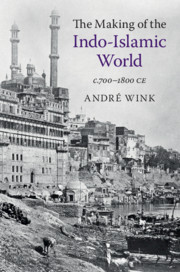Book contents
- Frontmatter
- Contents
- Figures
- Preface
- Abbreviations
- Introduction
- 1 Prehistoric and Ancient Antecedents
- 2 The Expansion of Agriculture and Settled Society
- 3 Geography and the World-Historical Context
- 4 Medieval India and the Rise of Islam
- 5 From the Mongols to the Great Mughals
- 6 The Empire of the Great Mughals and Its Indian Foundations
- 7 The Indian Ocean in the Age of the Estado da India and the East India Companies
- Epilogue
- Glossary
- Notes
- Suggested Reading
- Index
1 - Prehistoric and Ancient Antecedents
Published online by Cambridge University Press: 17 July 2020
- Frontmatter
- Contents
- Figures
- Preface
- Abbreviations
- Introduction
- 1 Prehistoric and Ancient Antecedents
- 2 The Expansion of Agriculture and Settled Society
- 3 Geography and the World-Historical Context
- 4 Medieval India and the Rise of Islam
- 5 From the Mongols to the Great Mughals
- 6 The Empire of the Great Mughals and Its Indian Foundations
- 7 The Indian Ocean in the Age of the Estado da India and the East India Companies
- Epilogue
- Glossary
- Notes
- Suggested Reading
- Index
Summary
Exploring the concept of India, the absence of a continuous tradition of urbanism there was due to general environmental instability. The important long-term secular development that lay at the foundation of Indian civilization was not urbanization; it was agricultural expansion and the rise of peasant villages. This process occurred relatively late. Not until the early medieval centuries does agricultural expansion become truly significant anywhere in India or the “Indic” realm that comprised South and Southeast Asia. The ancient Indian empires of the Mauryas and the Guptas were in no way the counterparts of the Roman and Achaemenid empires but, in contrast, mostly ideological, vaguely Buddhist constructions of ritual sovereignty providing only loose, extensive, and horizontal modes of integration along nodal points of long-distance trade. There was no prehistoric or ancient urban and imperial heritage that shaped the historical development of the Indo-Islamic world in medieval and early modern times. This sets it apart from the Islamic Middle East.
- Type
- Chapter
- Information
- The Making of the Indo-Islamic Worldc.700–1800 CE, pp. 8 - 29Publisher: Cambridge University PressPrint publication year: 2020

